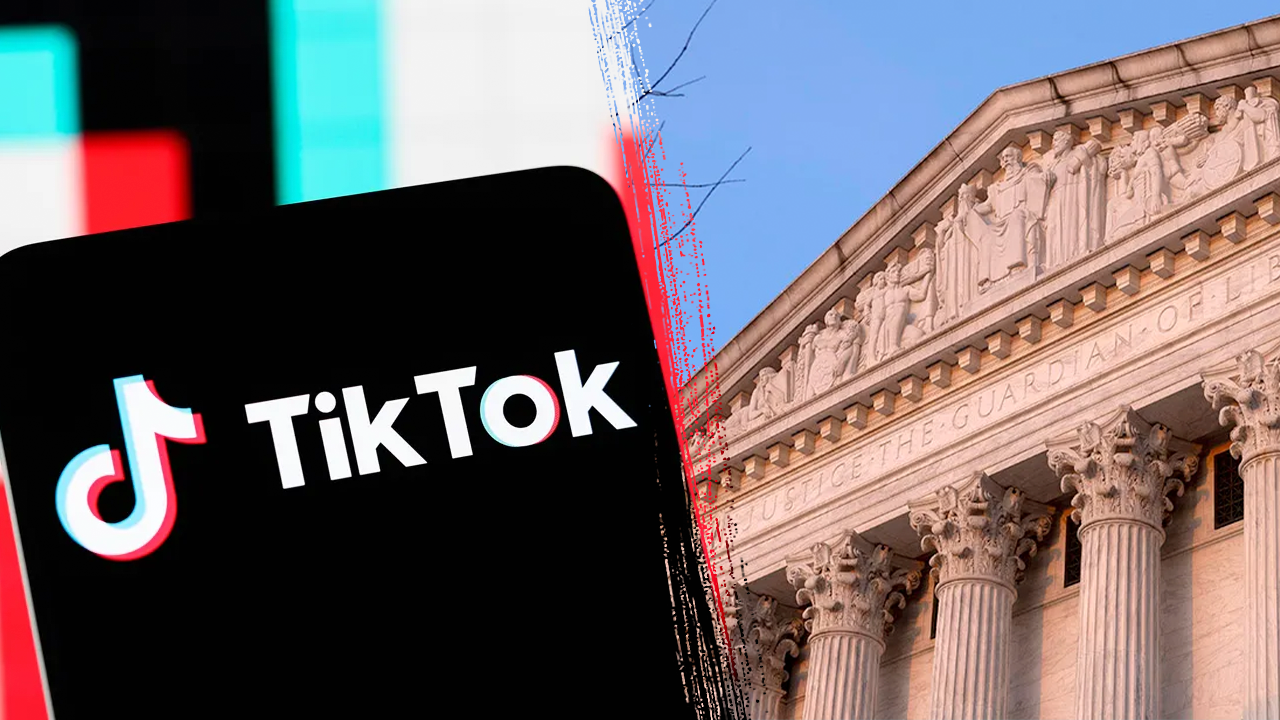TikTok ban upheld by Supreme Court.
The controversy centered on a law that mandated TikTok's Chinese proprietor to either divest the U.S. subsidiary or face a ban on the app.

On Friday, the Supreme Court upheld a federal law that would ban the Chinese-owned social media platform TikTok, just two days before the bipartisan divestiture law is set to take effect.
The Protecting Americans from Foreign Adversary Controlled Applications Act, which was passed by Congress in April with broad bipartisan support, presented TikTok with a choice: either divest from its Chinese parent company, ByteDance, within nine months or be removed from U.S.-based app stores and hosting services.
The passage of the law was influenced by Congress's worries about the app's Chinese ownership, which members believed could result in the app being used to harm users or collect large amounts of data, including from the 170 million Americans who use TikTok.
In May, TikTok, ByteDance, and several users of the app quickly filed a lawsuit to halt the ban, arguing that the legislation would infringe on free speech for the millions of Americans who use the platform. After a lower court upheld the ban, the Supreme Court agreed to hear TikTok's emergency request to either block or pause the implementation of the law within a fast-track timeline, just nine days before the ban was set to take effect.

In oral arguments, the lawyers for the Biden administration emphasized that TikTok's Chinese ownership poses a significant threat to American users' national security.
Elizabeth Prelogar, the U.S. Solicitor General, highlighted potential dangers that China could exploit TikTok's app, such as manipulating its algorithm to favor specific content or compelling ByteDance to divulge extensive user data collected by TikTok on American citizens.

TikTok's legal team attempted to portray the case as a limitation on free speech rights under the First Amendment, which they contend applies to their U.S. business operations.
TikTok's lawyer, Noel Francisco, contended that the U.S. government lacks a legitimate reason to hinder foreign propaganda and emphasized TikTok's stance that the platform and its proprietors should be granted the utmost safeguards under the First Amendment of the U.S. Constitution.
TikTok cannot divest from its Chinese parent company, as argued by Francisco, due to the presence of portions of its source code and intellectual property in China.
The government must sustain a higher burden of proof to justify a law's constitutionality under the First Amendment's strict scrutiny.
Government interests must be served by laws that protect First Amendment rights, with a narrow focus on achieving that interest.
The U.S. Court of Appeals for the District of Columbia Circuit upheld the divestiture law despite it being a challenging legal test to satisfy in court. The court outlined a way that the Supreme Court could have theoretically considered the case under strict scrutiny and still opted to uphold the law.
In the Supreme Court's oral arguments, several justices expressed doubts about the company's central claim that the law infringes on their right to free speech.
What is TikTok's speech in question? Justice Clarence Thomas raised this issue in the opening moments of oral arguments, hinting at the court's possible uncertainty about whether the law is a violation of the First Amendment.

Historically, the Supreme Court has been cautious in challenging Congress's decisions regarding national security matters, with its current 6-3 conservative majority continuing this trend.
The divestiture law, which was passed by Congress last year, was guided by top Justice Department officials who collaborated with House lawmakers to draft the bill and ensure its legal validity.
Recently, President-elect Trump has shown support for the app.
In December, Shou Zi Chew, the CEO of TikTok, was hosted by Trump at his Mar-a-Lago resort, and later, Trump announced that his incoming administration would review TikTok and the divestiture case.
The president-elect's legal team filed a brief with the Supreme Court requesting a delay in the case's decision until after his inauguration on January 20.
The brief did not indicate how Trump would behave, but mentioned his request for the court to postpone the ban's implementation until his inauguration.
politics
You might also like
- California enclave announces it will cooperate with immigration officials and the Trump administration.
- Danish lawmaker urges Trump to abandon Greenland acquisition plan.
- Now, the Dem who labeled Trump an "existential threat to democracy" is obstructing his nominees.
- The lawyer for Hegseth criticizes the "dubious and inaccurate" testimony of his ex-sister-in-law.
- The House GOP outlines a plan to improve the healthcare system, emphasizing its impact on national defense.



















